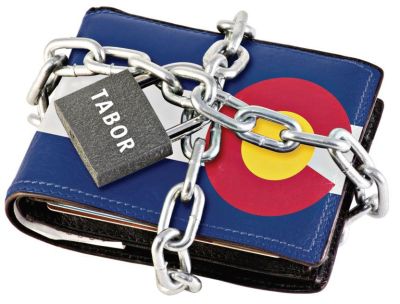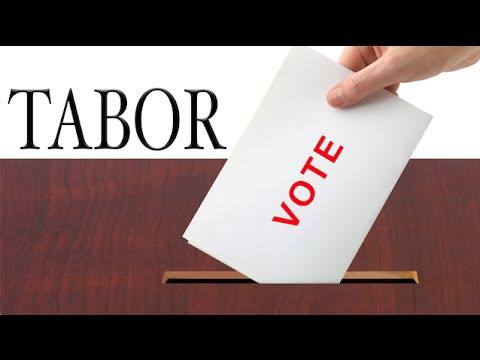
Category Archives: Taxes
Group forms to fight anti-TABOR ballot question
Group forms to fight anti-TABOR ballot question

A group made up of some of the Colorado Republican Party’s biggest names has formed to fight Proposition CC on the November ballot. The measure would allow the state to keep future refunds allowed by the Taxpayer’s Bill of Rights to go for schools and transportation.
The group, called No on CC, includes former Gov. Bill Owens, former U.S. Sen. Hank Brown, U.S. Rep. Ken Buck and Colorado House Republican leader Patrick Neville.
The leadership is strong and well-known in GOP circles, as well. The co-chairs are University of Colorado Regent At-Large Heidi Ganahl, 18th Judicial District Attorney George Brauchler, and former state treasurers Walker Stapleton and Mark Hillman.
Tampering with TABOR is expected to be a partisan brawl, since Republicans contend it keeps taxes and the size of government in check. They point to Colorado’s booming economy as proof balancing taxes and government works.
Colorado groups cry foul over misleading information about TABOR
Colorado groups cry foul over misleading information about TABOR

Voters will decide on Nov. 3 whether the state can keep excess revenues instead of refunding them to the taxpayer, and prevent voters from deciding on the matter in the future.
The legislatively referred state statute passed by a majority Democratic legislature and has the support of Democratic Gov. Jared Polis.
Among other things, the Taxpayer’s Bill of Rights (TABOR) requires the state to refund excess revenue to taxpayers.
The lead sponsor of the amendment, Democratic Rep. K.C. Becker, says that Colorado’s strong economy gives the impression that “the state itself can make more investments, more improvements,” without raising taxes. But, she says, “We can’t because the state constitution prohibits the budget from growing with the economy.”
This article originally ran on thecentersquare.com.
Ending tax refunds, sports betting on ballot as Propositions CC and DD
Ending tax refunds, sports betting on ballot as Propositions CC and DD
DENVER– According to the Secretary of State, two measures referred to voters in the 2019 Colorado legislative session–one aimed squarely at taxpayer refunds and another to implement sports betting– will appear on the November 5 state-wide ballot as Propositions CC and DD, respectively.
Proposition CC is the more contentious of the two, asking Coloradans to permanently give up any future tax refunds under the Taxpayer’s Bill of Rights, or TABOR.
TABOR is a constitutional amendment passed in 1992 that, among other things, limits the annual growth of a portion of the state budget to a formula of population growth plus inflation. The state is obligated to refund revenue in excess of that formula back to taxpayers, or get voter consent to keep and spend it temporarily.
So-called “enterprise” revenue is exempt from TABOR limits, and thus is already off limits for refunds. Enterprises are essentially government-owned entities that provide goods or services and are funded through fees, and which have grown dramatically in Colorado. According to the Legislative Council Staff, “Revenue to enterprises has grown significantly since the passage of TABOR, from $742 million in FY 1993-94, the first year TABOR was in effect, to $17.9billion in FY2017-18, the most recent year for which financial data are available.”
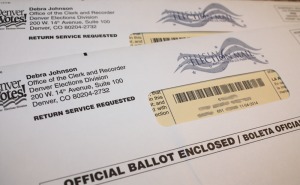
But if approved by voters, Prop CC would eliminate what’s left of the TABOR limit, allowing the state to keep and spend any and all excess revenues that would otherwise be refunded back to taxpayers in perpetuity.
The second measure, Proposition DD, would both authorize and tax sports betting in Colorado.
The U.S. Supreme Court in 2018 struck down a federal law restricting commercial sports betting in the states to only Nevada, thus opening the door for Prop DD. If passed, the measure would allow sports betting through licensed casinos in Colorado, as well as enact a 10 percent tax on the profits to “fund implementation of the state’s water plan and other public purposes.”
The propositions are statutory changes, meaning that they need 50 percent plus one of the vote to pass, and that lawmakers can later amend the measures if enacted, as with any other state law.
Ending tax refunds, sports betting on ballot as Propositions CC and DD
One picture is worth a thousand words….

Colorado voters to decide whether to dilute Taxpayer Bill of Rights
Colorado voters to decide whether to dilute Taxpayer Bill of Rights
Bills that passed during the legislative session would permanently end TABOR-granted tax refunds if voters give their approval
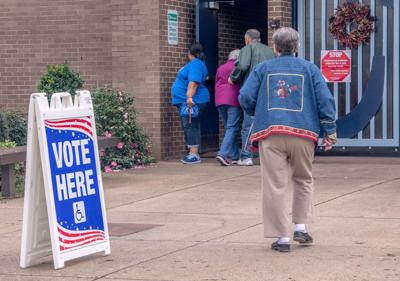
Colorado Democrats were successful in passing legislation this session that could chip away at the Taxpayer’s Bill of Rights (TABOR) if voters give the majority party what they want.
TABOR is a constitutional amendment that requires voters to approve all tax increases. In addition to being a check on tax and spending increases, TABOR requires voter approval of debt increases. The amendment also ensures taxpayers receive refunds when the government’s revenue increases faster than population growth plus inflation.
It’s also one of the most contentious and partisan issues at the Colorado capitol.
TABOR means that anytime legislators want to raise taxes, they have to seek voter approval at the ballot box. But referendums become expensive and require significant political capital, especially given Coloradans’ recent history of voting down tax increase proposals.
Sharf: The revolt of Colorado’s political elites
Sharf: The revolt of Colorado’s political elites
Laws outlining government powers frequently come with restrictions. (See the U.S. Constitution for an excellent example.) Sometimes, the laws are restrictions, and they include exceptions. And sometimes, people vote down expansions or loosening of those restrictions.
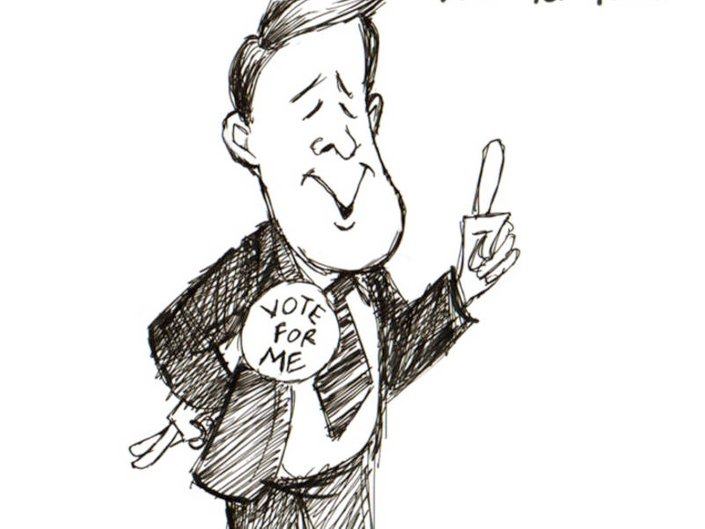
Described by one side as guardrails and the other as a straitjacket, such restrictions very quickly morph into obstacles to be overcome or, in extremis, ignored. That such arrogance is profoundly disrespectful to the people of Colorado hasn’t kept it from being the default position of far too many elected officials.
Examples are legion. In 2018, voters rejected a proposal for a half-mile setback for new oil and gas wells by a 10-point margin. Nevertheless, the current legislature has passed and the governor signed Senate Bill 19-181. That law would allow local governments to ban all new wells, and the state is drafting regulations permitting exactly the setback that voters decisively rejected. Continue reading
Michael Fields Discusses Threats Against TABOR on Devi’s Advocate With Mike Caldera
Why #TABOR Matters on May 14th
Because politicians don’t listen….
#TABOR
#ThankGodForTABOR
#TABORYes
#WhyTABORMatters
